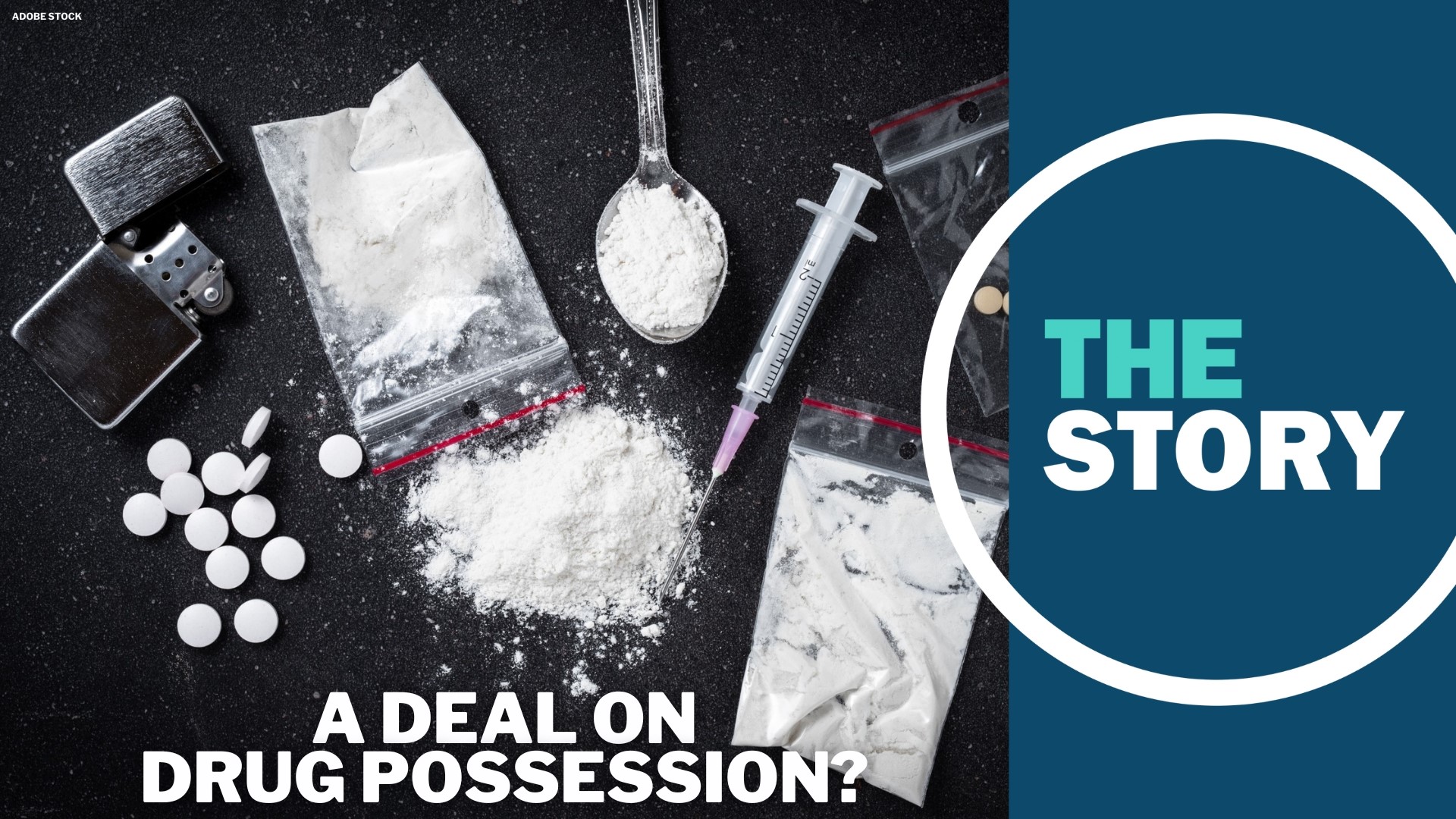SALEM, Ore. — Democrats and Republicans on a special legislative committee charged with overhauling Oregon's drug policies appeared to be nearing a deal Friday on a bill with bipartisan support, one that would see drug possession recriminalized amid a backlash to Measure 110.
Even prior to the 2024 legislative session's start early this month, lawmakers were divided on how to address state drug policy, though they seemed in broad agreement that criminal penalties for simple drug possession should return. Republicans floated their own bill early on; followed by House Bill 4002, the proposal from Democrats who head the special committee.
Although the two proposals differed in significant ways in terms of an overall approach to drug policy changes, the most fundamental difference came down to the different penalties for possession. Democrats proposed that it be a Class C misdemeanor, the lowest type of misdemeanor. Republicans supported a Class A misdemeanor, one step below a felony crime.
But this week, there were signs that lawmakers from both parties were considering a compromise, one that would instead classify simple possession as a special kind of misdemeanor, OPB reported — satisfying Republicans' drive for a longer potential jail sentence, while building in more ways for someone to avoid that sentence by seeking treatment.
Under the proposed amendment to HB 4002, rather than mandate that law enforcement agencies offer a "deflection program" to people arrested for drug possession as originally proposed, that route would now be entirely optional on a by-agency basis.
A deflection program, as originally described in the bill, meant that someone could undergo a behavioral health assessment and meet with a case worker, which would be enough to avoid prosecution. While it might lead to drug treatment, completion of treatment wasn't required.
The amended bill would mean that those convicted of the new unclassified misdemeanor would not receive immediate jail time, but would instead get probation. However, if they violated that probation, defendants could be jailed for up to six months.
OPB reports that even after violating probation, someone could secure release from jail in order to take part in drug treatment.
Advocates for Measure 110, including a coalition known as the Drug Policy Alliance and the Urban League of Portland, were already critical of proposals that would see drug possession recriminalized, which Democrats' initial offering did. They were even more incensed by news of the compromise amendments.
“We were in staunch opposition to any criminalization — or recrimination, I should say — of folks who are suffering," said Jennifer Parrish Taylor with the Urban League of Portland. "And, you know, from what we've heard is that, you know, this new iterative amendment that we are expecting is, quite frankly, worse than what was initially introduced. "
Some criticisms of the bill point to existing deficiencies in Oregon that will no doubt make recriminalization a messy proposition, even if the state commits to diversion programs for drug treatment. Despite simple drug possession charges being taken out of the equation, Oregon has struggled to field enough public defenders for criminal cases — resulting in many low-level cases being dismissed, or in defendants languishing in jail without representation.
RELATED: Oregon's unrepresented defendants must be released from jail statewide, federal judge rules
And while Measure 110 has helped to bankroll an expansion in Oregon's drug treatment and outreach capabilities, critics of HB 4002 say that the state has yet to reach a point where even the people actively seeking help can reliably find it. Adding drug users who are all but court-mandated to seek treatment could easily flood the state's fledgling addiction recovery system.
“Real solutions to drug addiction are more treatment, housing, prevention education, non-police mobile crisis teams, and community revitalization efforts," said Sandy Chung, executive director of the ACLU of Oregon. "Criminalization is not a real solution. It is a false promise that will inevitably result in more overdose deaths in the Oregon communities that most desperately need access to care."
It's still not entirely clear if the compromise amendment will garner enough support to move forward. In a statement released Friday morning, House Republican Leader Jeff Helfrich (R-Hood River) indicated that the support of his caucus would depend on the final product.
“Throughout this session, House Republicans have stood strong alongside law enforcement and district attorneys to resolve the Measure 110 crisis. Part of that solution absolutely must include recriminalizing drugs," said Helfrich, a former sergeant with the Portland Police Bureau. "Our members will review the bill text when it becomes available to ensure that this proposal achieves our goals of restoring criminal justice accountability and providing support to Oregonians struggling with addiction."
And while Gov. Tina Kotek has been cagey about what kind of drug policy bill she would sign, letting lawmakers figure out the details, she's indicated that she'll support any bill that she believes will help Oregon's drug crisis.
"The filter I'm bringing to it is we'll just make it better," Kotek told Laurel Porter on KGW's Straight Talk last week. "Will it make it better for the people who need the services? Will our communities be safer if they can pass that filter? Then I can sign the bill."
Legislative counsel posted two potential amendments to HB 4002 on Friday evening — one 137-page document from the whole committee (meaning it had the approval of Democratic leadership) and one 145-page offering from Rep. Kevin Mannix (R-Salem), who sits on the committee.
A public hearing on the amendments has been scheduled for Monday at 5 p.m. The bill could conceivably then move to a work session Tuesday, followed by floor readings in the House on two consecutive days, culminating in a floor vote on the third day. But there's no guarantee that HB 4002 will proceed on this expedited timeline.
The Story will follow up with more reporting on the substance of the proposed amendments once there's been sufficient time to examine them.

